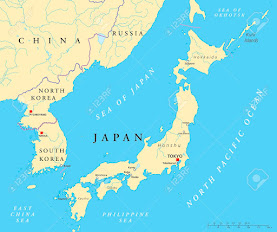Korea, with its long history, experienced significant changes in its economy before the war. With a lot of growth and transformations.
Ancient Korea: Agrarian Foundations
In ancient
times, Korea's economy relied heavily on agriculture. People cultivated crops
like rice and barley, which served as the backbone of their livelihood. Barter
and trade were common practices for exchanging goods.
Three Kingdoms Period: Trade and Exchange
During the
Three Kingdoms period, Korea began to engage in trade with neighboring
countries, such as China and Japan. This trade included silk, metals, and other
commodities, contributing to economic development.
Unified Silla Era: Flourishing Trade Routes
The Unified
Silla period saw Korea's economy flourish as international trade routes
expanded. Goods from Central Asia, such as textiles and spices, were traded.
This period marked the rise of a merchant class, contributing to economic
diversity.
Goryeo Dynasty: Agricultural and Trade Growth
The Goryeo
Dynasty witnessed the continuation of agriculture as a dominant economic
activity. Rice cultivation and porcelain production became significant sources
of revenue. Trade with China thrived during this era.
Joseon Dynasty: Economic Stability
The Joseon
Dynasty brought economic stability through agricultural reforms. Innovations
like the Jangseogak archives and advancements in printing supported knowledge
and commerce. Rice, grains, and handicrafts were key products traded both
domestically and abroad.
Japanese Colonial Period: Economic Challenges
The
Japanese colonial period posed challenges to Korea's economy, as Koreans faced
exploitation and hardship. Economic resources were often redirected to benefit
Japan, affecting the overall economic well-being of Koreans.
Korea's
economic journey before the war reflects its ability to adapt and evolve over
time. From its agrarian foundations to flourishing trade, agricultural reforms,
and the challenges of the colonial period, Korea's economic history is a
testament to its resilience and the enduring spirit of its people.







0 Comentarios